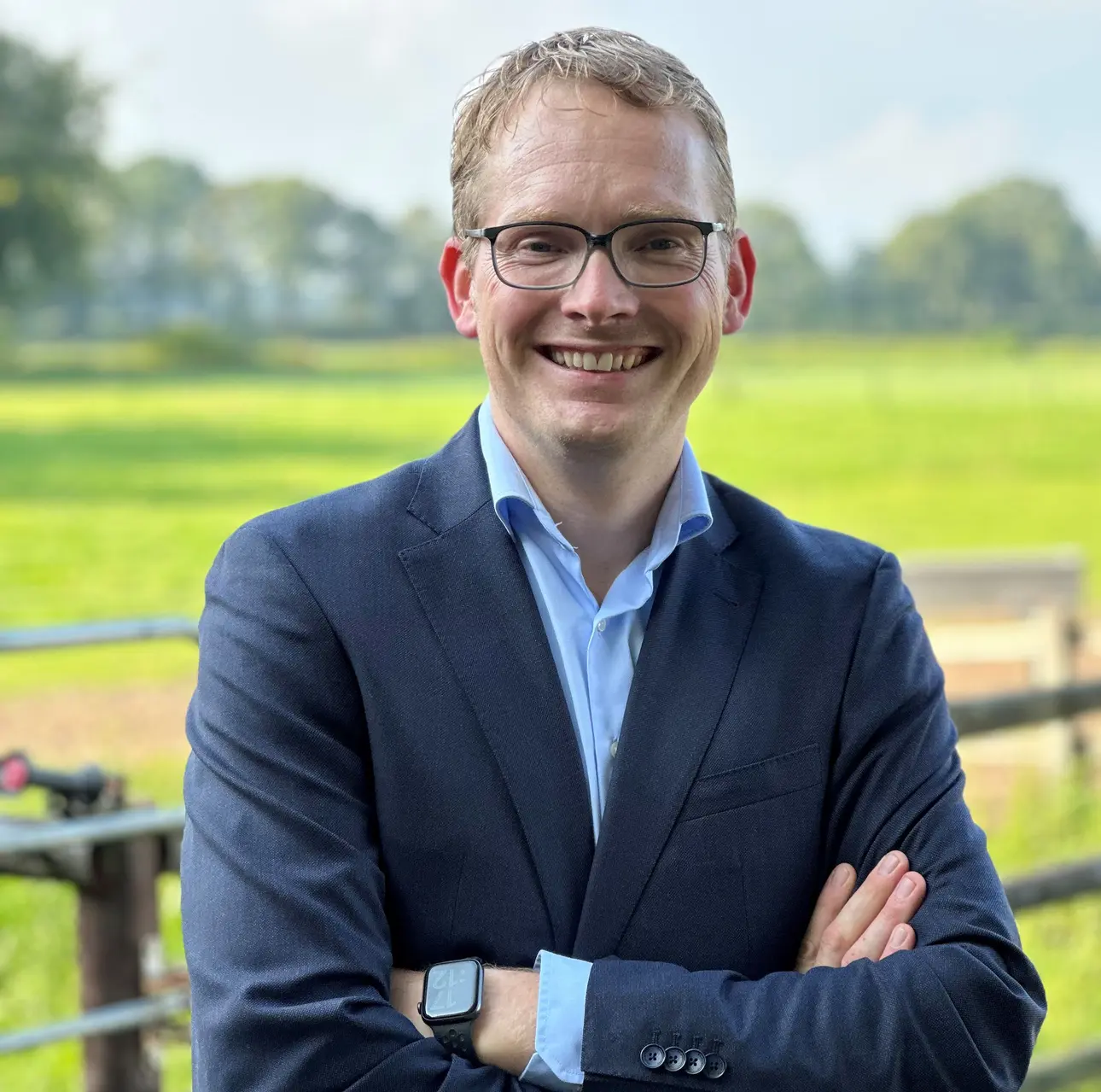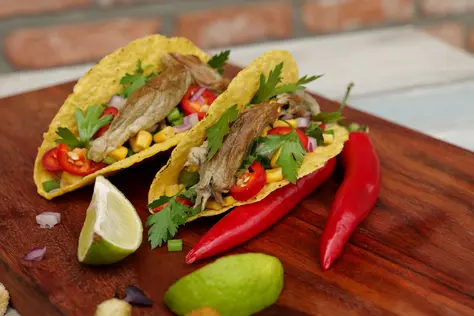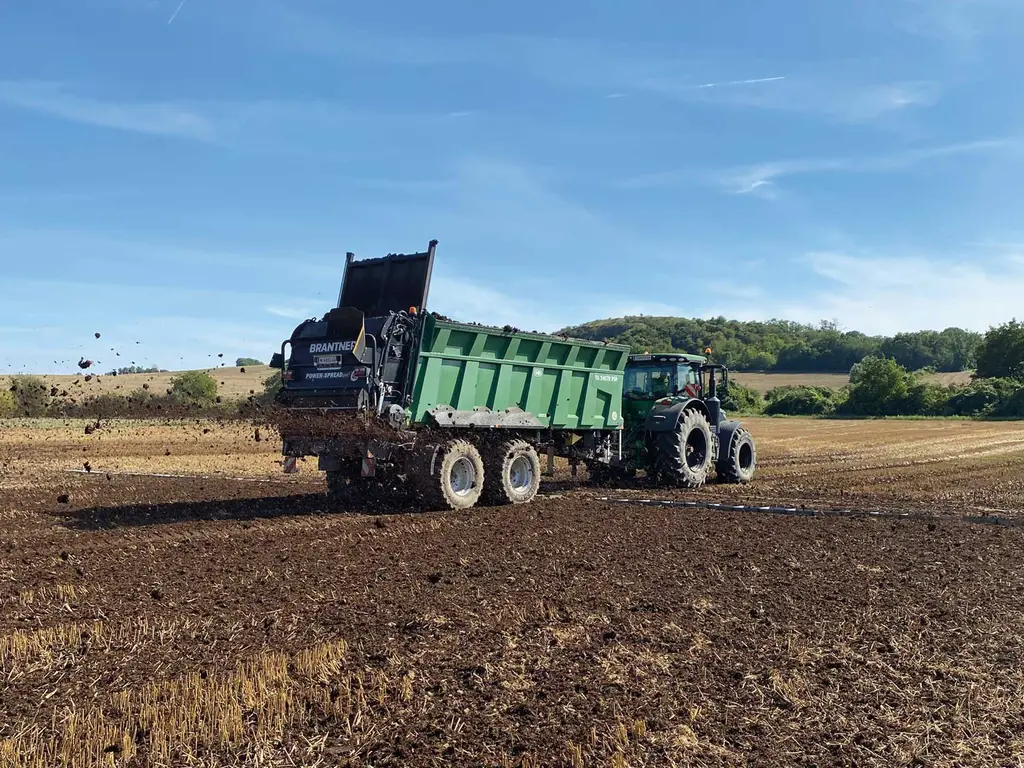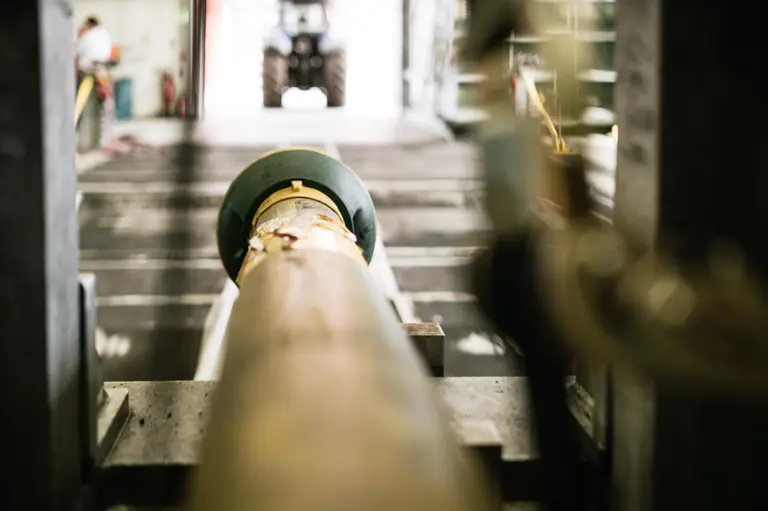DLG Member Edvinas Samkus from Lithuania organizes professional agricultural tours. A regular focus are trips to the DLG trade fairs Agritechnica and EuroTier in Hanover, Germany.
Mr Samkus, you offer agricultural trips. Who benefits from these trips? What is your relationship with the DLG?
We are DLG members already more than 10 years and we are very happy to be part of DLG community, because we can offer professional tours to DLG events in Germany. As we are professional agricultural tours organizers, mostly we are working with inbound tours for students, farmers, cooperatives, and agribusiness companies, in Lithuania and other neighborhood countries like Latvia and Estonia.
We always get positive feedback from our clients who traveling with us to DLG events in Germany. Clients are really interested in the newest agrotechnology presented during the events.
What developments do you observe, what are the main challenges that Lithuania´s agriculture has to face?
The agriculture sector in Lithuania has very old traditions and of course lots of developments during the past 30 years.
First, in my opinion, I see the biggest changes in agriculture in people who are farming and must adapt to an ever-changing environment, various regulations, technological progress.
That means, people are always in information flow which lets them grow personally and strengthens their agriculture business. Lucky are those farmers who already have the next family generation who take care of the farm and very easily use the latest technologies in agriculture.
Secondly - Agri cooperatives, which are becoming very strong and offer lots of activities for their members.
I can't say what is the main challenges in agriculture in Lithuania now, because challenges in agriculture being every day and this depends on many issues like weather, agriculture policy and rules, market prices and inflation, availability of finance and human resources. Also, this year farms are facing the challenges of rising energy prices, but in my way of thinking this will quickly affect the development of renewable energy.
What is your personal outlook for the agricultural sector over the next ten years?
When we are talking about the future in agriculture, I believe the right word to use is - the food sector in general from primary production to customers. Simple example: in Vilnius, the capital of Lithuania, the biggest vertical farm company in Europe which applies taiwanese gelponics technology (see box) to grow leafy greens is already installed and this technology allows us independence of the weather to grow greens all year round.
Another growth factor in the coming decade I think will be the increase in organic food production in Europe, technological development and productivity as robots will be employed in the fields.
What is Gelponics?
Gelponics improves the plant's moisture-holding capacity and stabilises moisture for a better yield. It also helps to increase the carbon and nitrogen content of the soil. Gelponics is made from renewable and eco-friendly materials, making it a sustainable alternative to peat, coco coir and rockwool. The characteristics are:
- Sustainable low-carbon substrate
- 100% natural and biodegradable
- Reduces cost and complexity
- Accelerates cultivation.
What impact does the Ukraine war have on the Lithuanian economy?
From my point of view, the war in Ukraina started in 2014, so it would be right to calculate impact from that time. From then on many food producers who did trade with Russia, already have changed export partners to other countries. Active invasion to all Ukraine influenced economy with energy prices. In Lithuania at the same time energy sector liberalization started, so it is hard to say which factor had more impact. As we are independent from Russia in gas sector, we have some fluctuations in market prices, but this is nothing in comparison what people, farms, business, and communities facing every day in Ukraine.





























































































































